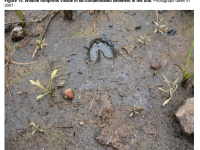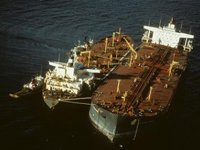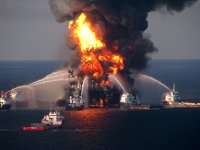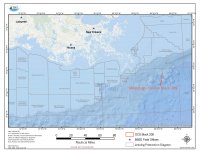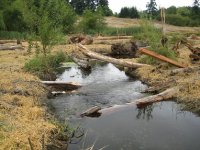General Recycling Settlement Finalized to Benefit Salmon, Wildlife, and Local Communities in the Lower Duwamish River, Washington
July 26, 2024
On July 15, 2024, the United States District Court for the Western District of Washington finalized a settlement with General Recycling and two affiliates valued at over $23 million for adverse impacts to natural resources resulting from hazardous substance releases into the Lower Duwamish River in Washington.
The Trustees for this case include the United States on behalf of the National Oceanic and Atmospheric Administration (NOAA) and the U.S. Department of the Interior, represented by the U.S. Fish & Wildlife Service; the State of Washington, on behalf of the Department of Ecology and Department of Fish and Wildlife; the Muckleshoot Indian Tribe; and the Suquamish Indian Tribe of the Port Madison Reservation.
As part of the settlement, the companies will construct and maintain a habitat restoration project at the General Recycling facility, located on the west bank of the Lower Duwamish River in a high-priority, industrialized area of the river. It will include nearly three acres of shoreline and aquatic habitat that will provide refuge areas and food sources for wildlife and various fish species, including juvenile salmon migrating from upriver spawning areas. The proposed habitat restoration project is outlined in the Final Restoration Plan and Environmental Assessment (PDF, 38 pages).
“NOAA is pleased to join this agreement with our co-trustees, private partners and industry to help restore vital habitats, fisheries and wildlife injured by pollution at this site”, said Nicole LeBoeuf, Assistant Administrator for NOAA's National Ocean Service. “Clean and productive waterways are vital to Tribal and local communities and this restoration will especially benefit those who have been disproportionately impacted by pollution.”
“The Washinton Department of Ecology applauds General Recycling and co-trustees for reaching this settlement that will aid the recovery of the Lower Duwamish River, benefiting both wildlife and Washington residents,” said Michael L. Blanton, Ecology’s Natural Resource Trustee.
"This agreement underscores what can be accomplished to restore natural resources when partners come together. Fish, wildlife, their habitat, and by extension our communities, will benefit from the persistence and dedication of this group of trustees," said Jeff Krausmann, NRDA Specialist with the U.S. Fish & Wildlife Service
Background on the Site
The Lower Duwamish River is a highly developed, urbanized, and industrialized estuary. Hazardous substances have been released since the early 1900s with over thirty hazardous substances documented in the sediments of the Lower Duwamish River. The river includes three Superfund sites: Lockheed West, Harbor Island, and the Lower Duwamish Waterway. Toxic contaminants resulted in injuries to fish, birds, wildlife and their habitats and recreational uses, including fishing. Also, channelization and filling destroyed approximately 97 percent of the original aquatic and shoreline habitat.
The Elliott Bay Trustees have been conducting a natural resource damage assessment to assess the impacts of this contamination and secure restoration on behalf of the public. The Trustees identified numerous potentially responsible parties for this contamination. This settlement does not represent the full amount of natural resource damages the Trustees seek to recover from other responsible parties at this site.
This settlement is part of a series of early settlements with polluting parties for natural resource damages in the Lower Duwamish River. Recent settlements include: the Boeing Company (2010); the City of Seattle (2021); Vigor Industrial and Exxon Mobil Corp. (2021); Lynden parties (2023); and Crowley Marine Services, Inc., 8th Avenue Terminals, Inc. and the Washington State Department of Transportation (2024).
NOAA and Co-Trustees continue negotiations with other potentially responsible parties who elected to participate in the early settlement phase. Future consent decrees finalizing those settlements would allow for more habitat restoration on the river. Trustees are also in the process of implementing the 2019 Injury Assessment Plan, to further evaluate impacts to natural resources on the river.
Additional information is available from this storymap.
For more information and to stay in the know, sign up for DARRP’s Coastal Recovery news.

